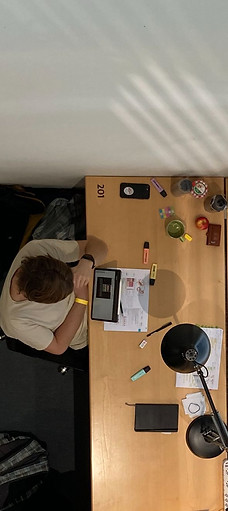Studies
Bachelor
The bachelor's programme normally takes 3 years to complete, if not taken part-time. There are two tracks to be chosen from, the biomolecular track, which is the standard programme for studying biochemistry, and the chemical track for students who want to focus more on the chemical side in the range of biochemistry. If you think about working as a teacher in a Gymansium after your studies, the chemical track is your choice, as it meets the needed criteria for doing so.
The first four semesters focus primarily on the fundamentals of mathematics, physics, chemistry, biochemistry, molecular biology and physiology. In addition, there is an practical course in chemistry in the first year of study, and several more practical courses in biochemistry in the following years.
After the first two years, both courses lead into the "Fachstudium", which is the same for everyone. In this last year of the bachelor's degree, the biochemical knowledge is deepened and intensified. You learn how to apply the knowledge acquired in the first two years of study and write a Bachelor's thesis at the end, which consists of a six week practical work and a two week frame two finish your written work.
For further informations visit the official website of the institute (UZH) or have a look at the "Wegleitung"

Master

For the Master's programme you need at least 3 semesters, i.e. a total of at least 4.5 years or 9 semesters for Bachelor's and Master's together. In addition to other compulsory courses, you will complete at least one research project, which includes 6 weeks of practical work, as well as a Master's thesis, for which a total of 9 months are spent, of which 6 months are spent working in the laboratory and 3 months are included for writing and completing the thesis.
